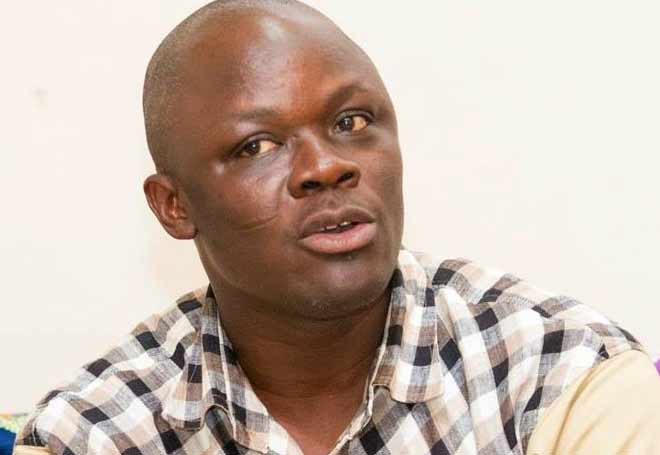Private Legal Practitioner, Samson Lardy Anyenini, has advised that the allegation leveled against the Attorney General, Godfred Yeboah Dame, regarding an alleged attempt to persuade the third accused person to indict the Minority Leader in the Ambulance case, should not be left to the court of public opinion.
According to him, issues pertaining to the law can be very technical, and therefore, individuals must allow the law to take its due process rather than declare the Attorney-General guilty before the actual verdict.
Speaking on Joy FM’s Top Story on May 27, he said “At this stage, I think that we all ought to be cautious in proceeding with so much emphasis and been categorical about things that we can allow due process to unfold.”
His comments follow the increasing calls for the Attorney-General to be removed from office for his supposed involvement in the act.
Notable among the calls is that of the former Director of the Ghana School of Law and private legal practitioner, Ansah Asare, for the resignation of the Attorney-General, Godfred Yeboah Dame.
According to the legal luminary, Mr Dame is experienced and well aware of the law; therefore, meeting with an accused person to enter into a plea bargain in the manner that it has been reported raises questions.
Speaking on Joy FM’s Midday News, he explained that the Attorney-General is a lawyer for the state; therefore, it is not right for the plaintiff to meet the accused behind closed doors as he did.
“My candid opinion is that the learned Attorney General knows or is deemed to know the law. Apart from the judges, I think the other person we can say the law rests in his bosom is the Attorney-General.
“The Attorney-General ought to know where, how and when he has to meet accused persons and in the residence of a sitting justice of the Supreme Court, this is scandalous and the Attorney General must resign or the president must fire him,” he said.
However, Mr Anyenini argued that until Mr Dame comments on the matter, he should not be condemned.
The lawyer added that the basic principle is for a person not to be condemned unless they have been heard; hence, the Attorney-General must be heard to establish the facts of the matter before an unbiased verdict is reached.
“I say that we don’t have to continue endless debates and a media war which would not get anywhere. There has to be a constituted inquiry that takes over all of these matters and goes through the process in compliance with due process so that in the end, we will all be satisfied that the law has been followed.
“Somebody did wrong they have been punished, somebody did not do wrong, they have been discharged,” he added.
Richard Jakpa, the third accused in the ambulance purchase trial, that the Attorney General previously approached him to help build a case against the Minority Leader and former Deputy Finance Minister, Dr Cassiel Ato Forson.
Under cross examination by counsel for the Minority Leader, Jakpa was cautioned by the trial judge, Justice Afia Serwah Asare-Botwe to be direct in his responses and avoid wasting the time of the court.
In response to the judge’s caution, Attorney-General Yeboah Dame accused Jakpa of defending the Minority Leader.
This accusation prompted Mr Jakpa to retort that the Attorney-General seemed aggrieved because he had previously failed to get him [Jakpa] to help the state build a case against Dr Ato Forson.
“The A-G has on several occasions engaged me at odd hours to help him make a case against A1 and I have evidence for that.. If he pushes me, I will open the Pandora’s box. I don’t understand why the A-G will accuse me of defending A1 when I’m here to defend myself,” Mr Jakpa said in court.
Subsequently, Spokesperson for the Department, Isaac Wilberforce Mensah, stated that during the time the meeting took place, Mr Jakpa was not represented by counsel. For this reason, the Attorney-General met him and a Supreme Court judge at the pre-negotiation stage.
Both the AG and the accused have threatened to release further evidence to fortify their cases. Other lawyers have also called on the right state institutions to investigate the matter since it has serious implications for justice delivery in the country.


